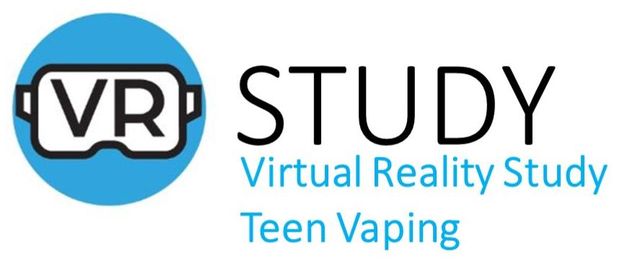Ongoing Research
Behavioral Activation Mobile App (ABLE) to Motivate Smokers to Quit
Behavioral activation (BA) is an evidence-based treatment for depression that fosters engagement in values-based goals and activities to increase contact with positive environmental reinforcement. In collaboration with the University of Manchester and the BU Software & Innovation Lab (SAIL), we developed and tested a mobile app that uses BA to motivate smokers to quit. Mixed methods (focus groups & surveys) were deployed to develop the app with the target population. This pilot randomized clinical trial was conducted with smokers in the UK. This work was funded by Cancer Research UK (B. Borrelli, PI).
Borrelli, B., Bartlett, Y. K., Fulford, D., Frasco, G., Armitage, C. J., & Wearden, A. (2024). Behavioral activation mobile app to motivate smokers to quit: Feasibility and Pilot Randomized Controlled Trial. JMIR Formative Research, 8, e54912. http://dx.doi.org/10.2196/54912. PMID: 38573739.
iSmile: Parent-Targeted Oral Health Text Messaging for Underserved Children Attending Community Health Center Pediatric Primary Care Clinics

The aim of this study was to test the effect of a parent-targeted text message program to improve early childhood caries and oral health behaviors among underserved children attending one of four pediatric primary care clinics. This randomized clinical trial with 754 families was preceeded by a pilot RCT and extensive co-development using mixed methods (focus groups, interviews, surveys), and field testing with the target population. This project was funded by the NIDCR (Borrelli & Henshaw, MPIs).
Borrelli B., Endrighi R., Heeren T., Adams W.G., Gansky S.A., Werntz S., Rueras N., Stephens D., Ameli N., Henshaw M.M. (2025). Parent-Targeted Oral Health Text Messaging for Underserved Children Attending Pediatric Clinics: A Randomized Clinical Trial. JAMA Network Open, 8(1):e2452780. doi: 10.1001/jamanetworkopen.2024.52780. PMID: 39745701; PMCID: PMC11696445.
Borrelli, B., Henshaw, M., Endrighi, R., Adams, W. G., Heeren, T., Rosen, R., Bock, B., & Werntz, S. (2019). An interactive parent-targeted text messaging intervention to improve oral health in children attending urban pediatric clinics: Feasibility randomized controlled trial. Journal of Medical Internet Research mHealth and uHealth, 7(11), e14247. doi:10.2196/14247. PMID: 31710306.
VapeChat

The aim of this project was to develop and test a Virtual Reality (VR) intervention for the prevention and cessation of vaping among teenagers in high schools. The randomized trial was conducted in two high schools in the Boston area. The VR intervention was co-developed and co-designed with teens, using mixed methods including focus groups, interviews, and playtesting. This project was funded by the American Heart Association (B. Borrelli, PI), and part of a larger center grant (N. Hamburg, PI)
Weinstein, D., Jones, E., Endrighi, R., Hart, J., Walker, K., Borrelli, B., & Quintiliani, L. (2024). “I knew the effects the whole time.” Examination of facilitators and barriers to quit vaping among adolescents. Addictive Behaviors, 157, 108087. doi: 10.1016/j.addbeh.2024.108087. PMID: 38870591.
Jones, E. J, Endrighi, R., Weinstein, D., Jankowski, A. J., Quintiliani, L. M., & Borrelli, B. (2023). Methods used to quit vaping among adolescents and associations with perceived risk, addiction, and socio-economic status. Addictive Behaviors, 147, 107835. https://doi.org/10.1016/j.addbeh.2023.107835.
Contact us:
(617) 358-6307
Virtual Reality (VR) Study

While dental providers are an effective means to deliver smoking cessation, they often do not have the time to counsel smokers, especially those who are unmotivated to quit. Smokers who are unmotivated to quit do not spontaneously seek treatment, so it is important to reach them in medical and dental settings. The aim of this randomized trial is test whether delivering smoking cessation through a virtual reality headset simultaneously while smokers are getting their teeth cleaned leads them to connect with smoking cessation aids and resources. This project was funded by the NIDCR. (B. Borrelli, PI; Co-Is: Marianne Jurasic, Romano Endrighi & Howard Cabral)
Borrelli, B., Endrighi, R., Jurasic, M., Hernandez, H., Jones, E., Ospina, J., Cabral, H., Quintiliani, L., & Werntz, S. (2022). A smoking cessation induction intervention via virtual reality headset during a dental cleaning: Protocol for a randomized controlled trial. BMC Public Health, 22(1), 1074. https://doi.org/10.1186/s12889-022-13427-y PMID: 35641925
Borrelli, B., Rueras, N., & Jurasic, M. (2021). Delivery of a smoking cessation induction intervention via virtual reality headset during a dental cleaning: Pilot study. Translational Behavioral Medicine. 11(1), 182-188. https://doi.org/10.1093/tbm/ibz144 PMID: 31665495
Contact us:
(617) 358-6294
Mobile & Electronic Health Affinity Research Collaborative (ME-ARC)

Founded in 2016 by Belinda Borrelli, the mission of the Mobile & Electronic Health ARC (ME-ARC) is to conduct transdisciplinary research and training with an emphasis on developing and testing digital solutions to improve the health and wellness of disparity-facing populations. To foster collaboration, we hold monthly seminars, annual symposia, assess BU digital needs through discussion groups and surveys, and provide consultation to BU researchers. We aim to establish connections with others who have a passion for digital health, and continue to develop a scientific vision and strategy for digital health at BU. Our November event, “Innovations in Digital Health Interventions”, aimed to share ongoing research in digital health interventions, form new collaborations and reignite old ones, and identify next steps for the ME-ARC.
You can find more information about the ME-ARC, upcoming and past events, and their projects on the ME-ARC website.
The ME-ARC is funded by the Evans Center for Interdisciplinary Biomedical Research at Boston University, Founding Director, Katya Ravid. To learn more, visit Boston University’s Evans Center ARCs website.
Implementation Science
CBSR is conducting interviews with a variety of stakeholders to integrate CBSR-developed evidence-based interventions into existing public health infrastructures.
